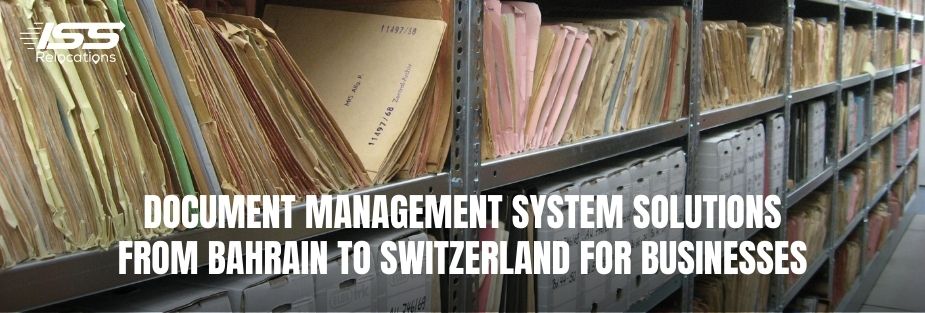
The Basics of Freight Forwarding: A Comprehensive Guide for Shippers
Basics of Freight Forwarding
Freight forwarding is the process of arranging the transportation and shipment of goods on behalf of a shipper. Freight forwarders are third-party logistics providers that work as intermediaries between shippers and carriers to manage and coordinate the movement of goods across the supply chain.
Importance of Freight Forwarding in the Shipping Industry
Freight forwarding plays a vital role in the shipping industry, as it ensures that goods are transported efficiently and effectively from the origin to the destination. Freight forwarders are responsible for managing the logistics of shipping, including documentation, customs clearance, packaging, and labelling. Their expertise helps shippers save time and money, reduce risks, and ensure compliance with regulations.
Overview of the Guide
This guide is designed to provide a comprehensive overview of freight forwarding for shippers. It covers the role of a freight forwarder, the different types of freight shipping, freight documentation, packaging and labelling, customs clearance, insurance, and freight rates and costs. By the end of this guide, shippers will have a better understanding of the freight forwarding process and how to choose the right freight forwarder for their needs.
Start Freight Forwarding!
Easy guide to freight forwarding for beginners
The Role of a Freight Forwarder
A. Functions of a Freight Forwarder
The main functions of a freight forwarder include:
- Managing the logistics of shipping, including the transportation of goods from the origin to the destination.
- Arranging for the pickup and delivery of goods from warehouses, ports, and airports.
- Preparing and managing documentation, such as bills of lading, commercial invoices, and packing lists.
- Coordinating with carriers, such as airlines, shipping lines, and trucking companies, to ensure that goods are transported in a timely and cost-effective manner.
- Managing customs clearance procedures, including obtaining necessary permits, licenses, and approvals.
B. Benefits of Using a Freight Forwarder
- Using a freight forwarder has several benefits, including:
- Expertise and knowledge of the shipping industry.
- Access to a network of carriers and agents.
- Reduced risk of damage, loss, or delay of goods.
- Compliance with regulations and customs requirements.
- Cost-effective shipping solutions.
C. Types of Freight Forwarders
There are different types of freight forwarders, including:
- Full-service freight forwarders that offer end-to-end logistics solutions, including transportation, warehousing, and customs clearance.
- NVOCC (non-vessel operating common carrier) forwarders that specialize in ocean freight and have their container fleets or space allocations.
- Airfreight forwarders specialize in air freight shipments and have airway bill stocks and air cargo space allocations.
- Customs brokers that specialize in customs clearance procedures.
Let’s Discuss Your Shipment!
Types of Freight Shipping
A. Air Freight
Air freight involves the transportation of goods by air. Some of the advantages of air freight include:
- Fast transit times.
- Reliable schedules.
- High level of security.
- Suitable for high-value and perishable goods.
However, air freight has some disadvantages, including:
- High cost compared to other modes of transport.
- Limited capacity and restrictions on size and weight of goods.
- Dependence on weather conditions and airport congestion.
Air freight is suitable for shippers who need fast and reliable transportation of high-value or time-sensitive goods, such as electronics, pharmaceuticals, and perishable products.
B. Ocean Freight
Ocean freight involves the transportation of goods by sea. Some of the advantages of ocean freight include:
- Cost-effective compared to air freight.
- Large capacity for heavy and bulky goods.
- Suitable for low-value and non-perishable goods.
However, ocean freight has some disadvantages, including:
- Slow transit times.Unpredictable schedules due to weather and port delays.
- The potential for damage or loss of goods during transit due to rough sea conditions or inadequate packaging
- Due to these disadvantages, ocean freight may not be suitable for all shipments. However, it is often the best option for companies looking to transport large, heavy or bulky goods over long distances.
When to Use Ocean Freight Ocean freight is often the best choice when shipping goods that are:
- Heavy or bulky: Ocean freight is ideal for transporting goods that are too heavy or bulky for air freight.
- Low-value: Goods that are not time-sensitive and have a lower value are good candidates for ocean freight, as the lower cost of shipping can offset longer transit times.
- Non-perishable: Goods that do not require special handlings, such as fresh produce or pharmaceuticals, can be shipped via ocean freight.
- Consistent demand: Ocean freight is suitable for goods with consistent demand, as it may not be suitable for time-sensitive shipments or goods with rapidly changing demand.
C. Road Freight
Road freight is the transportation of goods by trucks or lorries on roads and highways. Some of the advantages of road freight include:
Flexible pick-up and delivery options. Suitable for short to medium distances. Quick and reliable transit times. However, road freight has some disadvantages, including:
Limited capacity for large or bulky goods. Higher cost compared to ocean freight for long distances. Reliance on road infrastructure and potential for traffic delays. Despite its limitations, road freight is often a crucial part of the supply chain for many industries. It is particularly useful for the transportation of time-sensitive goods over short distances, such as perishable goods or urgent documents.
When to Use Road Freight Road freight is often the best choice when shipping goods that are:
- Time-sensitive: Road freight is often faster than ocean freight and can be more flexible than air freight when it comes to pick-up and delivery options.
- Short to medium distances: Road freight is best suited for distances that are too long for local delivery but too short for air or ocean freight.
- Limited volume: Road freight is ideal for transporting goods that are too small for ocean freight but too large for air freight.
- Consistent demand: Like ocean freight, road freight is suitable for goods with consistent demand, as it may not be suitable for time-sensitive shipments or goods with rapidly changing demand.
Freight documentation is an essential part of the shipping process. It provides proof of ownership, shipping instructions, and details about the goods being transported. Some of the most common documents used in freight forwarding include:
- Bill of Lading: The Bill of Lading (B/L) is a legal document that serves as a receipt for the goods being shipped and a contract between the shipper and the carrier. It includes information about the goods being shipped, the origin and destination of the shipment, and the terms and conditions of the contract.
- Commercial Invoice: A Commercial Invoice is a document that provides details of the goods being shipped, including the quantity, value, and description. It is used for customs clearance and to determine the value of the shipment for insurance and taxation purposes.
- Packing List: A Packing List is a document that provides a detailed list of all the items being shipped, including their weight, dimensions, and packaging details. It is used by carriers to verify the contents of the shipment and by customs officials for inspection purposes
- Certificates of Origin: A Certificate of Origin is a document that certifies the origin of the goods being shipped. It is required for customs clearance and to determine whether the shipment is eligible for preferential treatment under trade agreements.
Other necessary documents may include export licenses, permits, and insurance certificates, depending on the nature of the shipment and the destination country.
Packaging and Labelling
Proper packaging and labelling are crucial for the safe transportation of goods. Packaging serves as protection for the cargo during handling, loading, and unloading. Labelling provides vital information about the cargo and its handling requirements. Here are some things to consider when packaging and labelling your freight:
A. Importance of Proper Packaging and Labelling
Improper packaging and labelling can result in damaged goods, loss of cargo, and even accidents. Proper packaging helps protect the cargo from moisture, shock, and vibration during transit. It also ensures that the cargo is safe and secure during loading and unloading. Proper labelling is equally important, as it helps ensure that the cargo is handled correctly and that the necessary precautions are taken.
B. Types of Packaging Materials
There are various types of packaging materials that you can use to package your goods for shipping. The choice of packaging material will depend on the nature of your cargo and the mode of transportation. Here are some common types of packaging materials:
- Corrugated Boxes: These are the most common type of packaging material used in the shipping industry. They are durable, lightweight, and can be easily customized to fit the cargo.
- Pallets: Pallets are used to transport goods that are too heavy or bulky to be shipped in boxes. They provide a stable base for the cargo and can be easily moved with a forklift or pallet jack.
- Crates: Crates are used to transport fragile or irregularly shaped cargo. They provide extra protection and are made of sturdy materials like wood or metal.
- Dunnage: Dunnage refers to materials like foam, bubble wrap, or airbags that are used to cushion the cargo and protect it from shocks and vibrations.
C.Labelling Requirements
Proper labelling of your freight is crucial to ensure that it is handled and transported safely. The following information should be included on your cargo labels:
- Consignee and Consignor Information: This includes the name, address, and contact details of the consignee and consignor.
- Cargo Information: This includes the weight, dimensions, and quantity of the cargo.
- Handling Information: This includes any special handling requirements for the cargo, such as “fragile” or “handle with care.”
- Hazardous Materials Information: If your cargo contains hazardous materials, you must comply with the regulations for labelling and marking these materials.
Customs Clearance
Customs clearance is the process of clearing your cargo through customs so that it can be released for delivery. This process involves submitting the necessary documentation and paying any customs duties or taxes that may be required. Here are some things to consider when clearing your cargo through customs:
A. Importance of Customs Clearance
Customs clearance is essential for any international shipment. Without proper clearance, your cargo will not be allowed into the destination country. Customs clearance ensures that your cargo complies with all the regulations and requirements of the destination country.
B. Documents Required for Customs Clearance
The following documents are required for customs clearance:
- Commercial Invoice: This document provides details about the cargo, including the value, quantity, and description.
- Bill of Lading: This document serves as proof of ownership of the cargo and provides details about the shipment.
- Packing List: This document provides details about the contents of each package in the shipment.
- Certificates of Origin: These documents provide proof of the country of origin of the cargo.
- Other Necessary Documents: Depending on the nature of your cargo, you may be required to provide additional documents, such as permits, licenses, or certificates.
C. Clearance Process
The clearance process can vary depending on the destination country and the mode of transportation. In general, the process involves the following steps:
- Submission of Documents: The first step in the clearance process is the submission of all necessary documents to the customs broker or the relevant government agency. The documents will be reviewed to ensure that they meet all the requirements for clearance.
- Inspection: Once the documents are submitted and approved, the customs authorities may conduct an inspection of the cargo to verify its contents and ensure that it complies with all applicable laws and regulations.
- Payment of Duties and Taxes: If applicable, the shipper or consignee will be required to pay duties, taxes, and other fees before the cargo can be released from customs.
- Release of Cargo: Once all fees are paid, and the cargo is cleared, it will be released for delivery to the final destination.
It is essential to note that the customs clearance process can be lengthy and complicated, particularly for shipments involving controlled or regulated goods. As such, it is essential to work with a reputable customs broker or freight forwarder to ensure that your cargo clears customs as quickly and smoothly as possible.
Insurance
A. Importance of Freight Insurance
Freight insurance is essential to protect your cargo from loss or damage while in transit. Although carriers are typically liable for loss or damage to cargo, their liability is limited and may not cover the full value of your shipment. Freight insurance provides additional coverage to ensure that you are fully compensated in the event of loss or damage.
B. Types of Freight Insurance
There are several types of freight insurance policies, including:
- All-Risk: This policy provides the most comprehensive coverage, protecting your cargo from all risks of loss or damage, except those specifically excluded.
- Named Perils: This policy covers specific risks or perils that are listed in the policy, such as fire, theft, or collision.
- Total Loss: This policy covers only total loss or destruction of the cargo.
C. Choosing the Right Insurance Policy
When choosing a freight insurance policy, it is essential to consider factors such as the value of your cargo, the mode of transportation, and the potential risks involved. A reputable freight forwarder or insurance broker can help you select the right policy for your specific needs.
Freight Rates and Costs
A. Factors that Affect Freight Rates
Freight rates are determined by several factors, including:
- Mode of Transportation: Different modes of transportation have different rates, with air freight typically being the most expensive.
- Distance: The farther your cargo needs to travel, the higher the shipping costs will be.
- Weight and Size: Heavier and larger shipments typically have higher rates than smaller shipments.
- Type of Cargo: The nature of your cargo can also affect the shipping rates, with hazardous or perishable goods often costing more to transport.
B. Understanding Freight Costs
Understanding the different components of freight costs can help you manage your shipping expenses more effectively. Freight costs typically include:
- Transportation Charges: These are the fees charged by the carrier for transporting your cargo.
- Fuel Surcharges: Fuel surcharges are added to the transportation charges to compensate for fluctuations in fuel prices.
- Handling Charges: Handling charges are fees charged by the carrier for loading and unloading your cargo.
- Customs Fees: Customs fees are charged by the government for processing your cargo through customs.
- Insurance: Freight insurance premiums are also included in the total shipping costs.
C. Negotiating Freight Rates
Working with a reputable freight forwarder can help you negotiate better freight rates. Freight forwarders have established relationships with carriers and can leverage their buying power to secure better rates for their clients. Additionally, they can help you optimize your shipping strategy to reduce costs and improve efficiency.
Conclusion
A. Recap of the Guide
In this comprehensive guide, we have explored the basics of freight forwarding and its importance in the shipping industry. We have discussed the role of a freight forwarder, the different types of freight shipping, and the necessary documentation, packaging, and labelling requirements. We have also covered the customs clearance process, the importance of freight insurance, factors that affect freight rates and costs, and how to negotiate these rates.
B. Final Thoughts on Freight Forwarding
Freight forwarding plays a critical role in the shipping industry, and it is important for shippers to understand the process and requirements involved. By partnering with a reliable freight forwarder like ISS Relocations, shippers can benefit from their expertise and experience in managing and coordinating the logistics of their shipments.
Proper documentation, packaging, and labelling, as well as compliance with customs regulations and requirements, are crucial for the success of any international shipment. Freight insurance is also important to protect against potential losses or damages that may occur during transportation.
C. Contact Information for ISS Relocations
If you are in need of professional and reliable freight forwarding services, ISS Relocations is here to help. Our team of experts can assist with all aspects of your international shipment, from customs clearance to transportation and delivery. Contact us today to learn more about our services and how we can help you with your shipping needs.
Plan Stress-free Move with Top Moving Company in UAE - ISS Relocations

Frequently Asked Questions
What are the 7 stages of shipment?
The 7 stages of shipment are: 1) Booking the shipment, 2) Preparing the goods, 3) Transporting to the port, 4) Customs clearance, 5) Shipping the goods, 6) Delivery to the destination, and 7) Final clearance. ISS Relocations offers expert freight forwarding services, ensuring that each stage is handled efficiently for a smooth shipment process.
What are the steps in freight forwarding?
The steps in freight forwarding include 1) Arranging transportation, 2) Packaging and documentation, 3) Customs clearance, 4) Shipping, 5) Delivery, and 6) Unloading. ISS Relocations specializes in seamless freight forwarding, managing every step to ensure your goods arrive securely and on time, whether you’re shipping locally or internationally.
What is the basic knowledge of freight forwarding?
Freight forwarding involves coordinating the transportation of goods, including selecting carriers, handling customs documentation, and ensuring safe delivery. ISS Relocations provides expert knowledge of the freight forwarding process, offering efficient and reliable shipping solutions to meet all your relocation and business needs.
What is the principle of freight forwarding?
The principle of freight forwarding is to act as an intermediary between the shipper and carriers, managing the logistics, documentation, and transportation of goods. ISS Relocations ensures that your shipments are handled professionally, ensuring timely delivery and compliance with all regulations, whether you’re shipping locally or internationally.
Why is freight forwarding important in Dubai?
Freight forwarding is important in Dubai due to its strategic location as a global trading hub, facilitating efficient import/export activities. ISS Relocations offers comprehensive freight forwarding services in Dubai, ensuring smooth logistics, timely delivery, and adherence to customs regulations, making it easier for businesses and individuals to ship goods worldwide.
How does the freight forwarding work in UAE?
Freight forwarding in the UAE involves managing the logistics of transporting goods across international borders, ensuring compliance with customs, and choosing the best transport methods. ISS Relocations provides expert freight forwarding services, handling all aspects of shipping, from documentation to delivery, ensuring your goods are delivered safely and efficiently in the UAE.
Why work in freight forwarding in UAE?
Working in freight forwarding in the UAE offers opportunities in a growing logistics sector, with the UAE being a central hub for global trade. ISS Relocations offers industry-leading freight forwarding services, providing a dynamic environment for professionals to work in and expand their expertise, supporting businesses in smooth international shipping.
Moving Company - Recent Blog
Stay informed and prepared for your next move with our latest blogs on moving services in the UAE. From expert packing tips to international relocation guides, ISS Relocations brings you up-to-date insights to make your moving experience smoother, safer, and stress-free.










